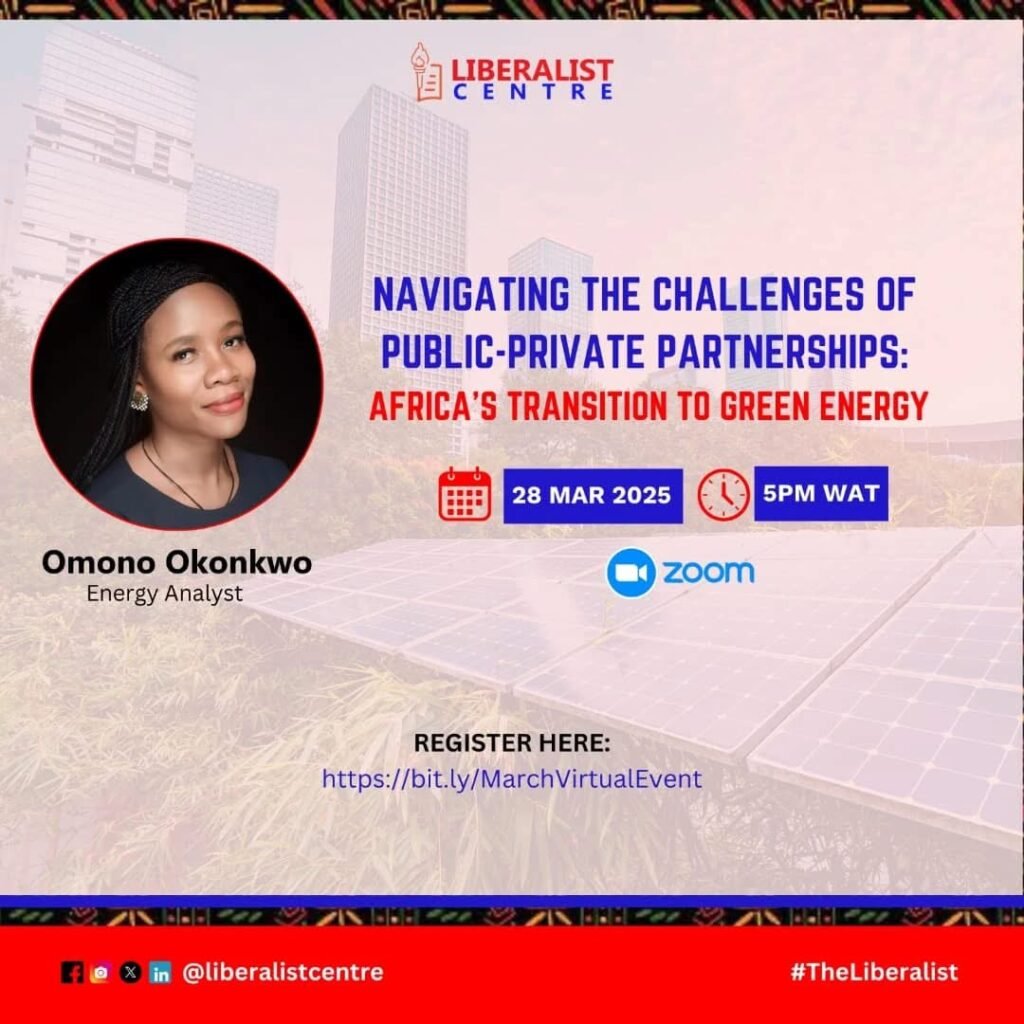Despite the Nigeria Electricity Act’s promise to revolutionise the nation’s energy landscape by promoting public-private investments, not all Nigerian states are positioned to benefit from its provisions, noted Omono Okonkwo, an energy analyst and energy communicator at Energy Newsletter.
Speaking at the Liberalist Centre’s virtual event on Friday, March 28, Omono explained that while the Act grants all states the authority to generate, transmit and distribute electricity from clean energy sources, disparities in infrastructure and economic appeal hinder uniform implementation.
“Part of the Electricity Act provides for all states in Nigeria to transmit, generate, and distribute electricity through the clean energy sources, harnessing gas, hydropower, and solar power,” she said. “However, not all states are empowered to fully commit to it and ensure that they are implementing it to their advantage.”
Signed into law in 2023, the Electricity Act aims to popularise renewable energy in the energy industry. It also seeks to advance state governments’ participation and provides room for their collaboration with the private sector. According to Omono, this model can help boost the nation’s energy sector.
“Lagos state is more empowered to attract investors than states like Jigawa because it is more appealing to businesses and more secure when it comes to investment; hence its leverage on the Nigeria Electricity Act compared to others, explained Omono.”
“Investors are not charity organisations. They are very particular about their investment and love to put their money into places that are secure; thus, the quest for states that are more economically productive.” She cited insecurity and inconsistent government policies as major obstacles to private-sector participation, noting that past energy projects had failed due to unstable regulations and policy shifts.
With the Electricity Act, she said, “the timing is perfect for public-private partnerships to facilitate a sustainable energy sector.”

Omono also pointed to the African Continental Free Trade Area (AfCFTA) agreement as a potential enabler of energy transition in Africa, advocating the need for participating states to integrate its mechanisms into national policies.
Hosted monthly by The Liberalist Centre, an Abuja-based non-governmental organisation advocating for economic and individual freedom in Africa, the webinar, themed “Navigating the Challenges of Public-Private Partnerships: Africa’s Transition to Green Energy,” attracted more than 100 registrations and 40 participants from seven African countries, including Nigeria, Kenya, Egypt and South Africa.













